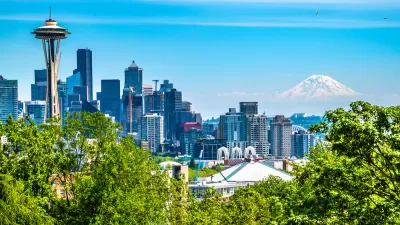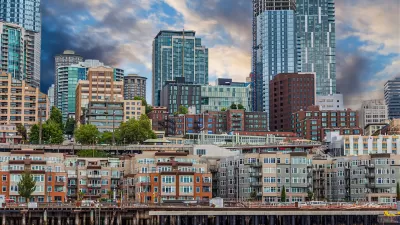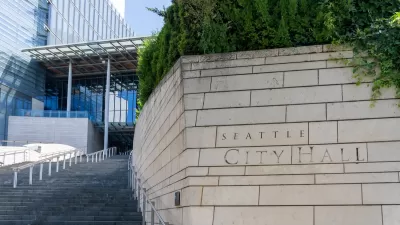The city of Seattle needs more affordable housing, like most cities. It also has almost 2,000 existing affordable units at "high risk" in the event of an earthquake.

A new earthquake system went into effect in the Pacific Northwest in April 2017, but the threat of a massively destructive earthquake still hangs over the Pacific Northwest.
In this context, the city of Seattle is faced with a difficult choice in its ongoing efforts to add affordable housing supply to keep up with rising demand in the growing city.
An article by David Kroman poses the question: "Should scarce dollars go towards making the existing housing safer at the potential expense of building new housing?"
The question has been raised in light of a recent analysis by the city's Department of Construction an Inspections, which cross-referenced the city’s list of unreinforced masonry buildings with its portfolio of affordable housing, finding "as many as 39 buildings containing 1,873 affordable apartments that could be unsafe in an earthquake."
"Estimating a retrofitting cost of $45 per square foot to bring them up to safety standards, the Office of Housing warned then Mayor-elect Jenny Durkan during her transition that the city could need as much as $79 million to upgrade the buildings," adds Kroman.
According to Kroman, Seattle and Washington lag behind California and Oregon in retrofitting buildings for earthquake safety. Other reports have identified thousands of unreinforced masonry structures in the hip Seattle neighborhood of Capitol Hill. Portland has been working recently to identify additional vulnerabilities. Los Angeles mandated another round of earthquake safety retrofits in October 2015.
FULL STORY: Seattle's earthquake-prone affordable housing needs $79M fix

Alabama: Trump Terminates Settlements for Black Communities Harmed By Raw Sewage
Trump deemed the landmark civil rights agreement “illegal DEI and environmental justice policy.”

Study: Maui’s Plan to Convert Vacation Rentals to Long-Term Housing Could Cause Nearly $1 Billion Economic Loss
The plan would reduce visitor accommodation by 25% resulting in 1,900 jobs lost.

Planetizen Federal Action Tracker
A weekly monitor of how Trump’s orders and actions are impacting planners and planning in America.

Waymo Gets Permission to Map SF’s Market Street
If allowed to operate on the traffic-restricted street, Waymo’s autonomous taxis would have a leg up over ride-hailing competitors — and counter the city’s efforts to grow bike and pedestrian on the thoroughfare.

Parklet Symposium Highlights the Success of Shared Spaces
Parklets got a boost during the Covid-19 pandemic, when the concept was translated to outdoor dining programs that offered restaurants a lifeline during the shutdown.

Federal Homelessness Agency Places Entire Staff on Leave
The U.S. Interagency Council on Homelessness is the only federal agency dedicated to preventing and ending homelessness.
Urban Design for Planners 1: Software Tools
This six-course series explores essential urban design concepts using open source software and equips planners with the tools they need to participate fully in the urban design process.
Planning for Universal Design
Learn the tools for implementing Universal Design in planning regulations.
Caltrans
Smith Gee Studio
Institute for Housing and Urban Development Studies (IHS)
City of Grandview
Harvard GSD Executive Education
Toledo-Lucas County Plan Commissions
Salt Lake City
NYU Wagner Graduate School of Public Service





























